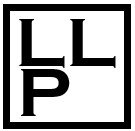Access and Public Libraries
We live in an information-dependent society. This means the technology to access this information, the ability to evaluate information, and the skills and resources needed to apply information to accomplish specific goals is critical. Layer on top of this COVID and the paths to information - whether for education, enrichment, employment, or recreation - have become drastically constrained. The result is an information access crisis. During our travels in Library Land, and as I begin my library studies at the University of Alabama, it’s clear that libraries are an essential resource for keeping communities connected and informed.
When the online world took off, decades ago now, there was concern about the “digital divide,” and making sure people had the devices and connectivity to avoid being left behind. That, as it turns out, was the easy part. While there are still individuals and communities that struggle with substandard access, millions of people do have connectivity and technology thanks to mobile devices.
Two cups and a string might count as a telephone for toddlers, but it doesn’t really get the job done. Nor do smartphones and data plans alone solve the issue of access. Simply having a connection is a far cry from having meaningful and actionable access to information.
While connectivity is the first step, how do people make sense of the information they’re using? How do they evaluate it - not just from a qualitative perspective, but also its appropriateness and applicability to a specific purpose? And finally, how can information be put to work? All of these things matter now and will only matter more as the future unfolds. And in each case, public libraries are here to help.
Equal access to accurate information about the world around us is a basic right. Not having this level of access puts people at a real disadvantage. Individuals can’t participate in their communities (particularly during COVID) if they don’t have access to information and an understanding of how to use it effectively. This disparity has real-world consequences for millions of people.
Here are just a few examples of how this plays out:
Education - with many schools around the country closed for in-person classes, access means not only being able to connect with instructors and classmates from home but also being able to find and use accurate and relevant information. We’re hearing about libraries that are making connections and support available for students who may struggle with accessing and participating in online learning.
Civic Engagement - with elections moving from the ballot box to the mailbox as more Americans take advantage of mail-in voting, voters need to be able to find and weigh information on issues and candidates. This is a perennial issue and one and one that many libraries are tackling head-on through voter education and civic engagement programs.
Health Information - COVID has made the ability to access accurate and timely information critical. It’s not just COVID though, with an increased reluctance to seek medical attention, general health and wellness information is also important. Library websites, in many cases, are serving as trusted clearinghouses for this information.
Workforce Development - COVID has changed how many engage with their co-workers and employers. It has also changed the process of finding open opportunities and interviewing for positions. Historically, libraries have done everything from hosting resume workshops to serving as sites for career development programs.
Public libraries are critical for connecting their communities with the information that matters in these four areas and many more. They have long been recognized as trusted sources for accurate information - and they continue to play this role. Librarians’ expertise and authority when it comes to collecting, curating, and sharing information make them an indispensable and trusted resource.
Libraries have also been a source of the connectivity and technology people need to access information. This can mean access to public computers, broadband hotspots that can be borrowed by patrons, or simply making wifi available inside and outside their buildings. It also means providing support to connect individuals with the information resources they need.
Libraries are also often a direct connection to local government and services. This can take the form of local politicians holding office hours in the library, voter registration efforts, or access to government services in a familiar and welcoming environment.
Finally, they are able to educate the public on ways to identify quality information and how to put that information to work. This can mean helping people more media literate to help them recognize fake news or providing more hands-on support to find and fill out forms needed for all kinds of purposes and services.
The world may never return to what it once was. It may feel disrupted and strange for years to come. In our information-rich world, we need to ensure that everyone has access to the knowledge they need to be as successful as possible. Our public libraries are the best position to provide these services.

